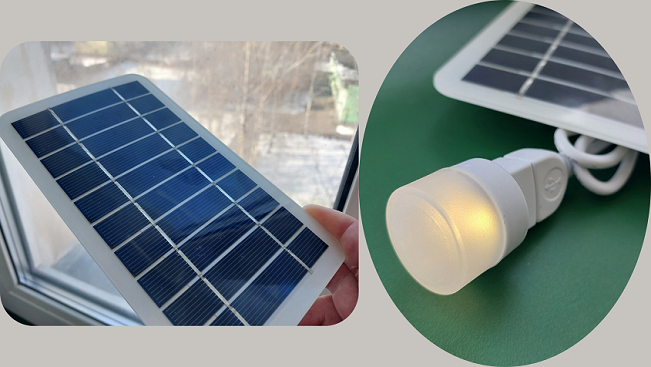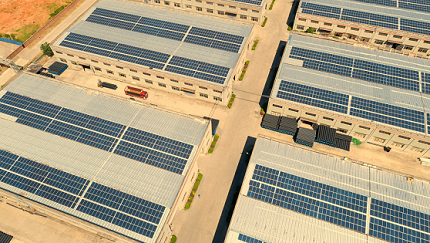
As homeowners buy up solar panels to reduce the carbon footprint and save on energy costs, renters are struggling to get the most out of their solar energy. Fortunately, there are lots of ways a renter can actually own solar energy. This article will explore the different ways that renters can use solar energy, what benefits it offers, and how you use it.
Solar Energy for Renters
Solar panels often require the landlord’s permission and a significant investment up front, so they are usually not a good option for tenants. But even in the face of these obstacles, there are still avenues tenants can take to spring into the solar revolution of today.
Renters Option for Accessing Solar Energy
Community Solar Programs

Shared solar projects—a type of community solar—are when more than one person benefits from a single solar array. Tenants can benefit from these programs, where they don’t have to pay for the installation or maintenance of a solar farm, but can instead purchase a portion of the energy produced.
How it works: Tenants can choose to participate in a community solar program that will credit his or her electricity bill and charge a subscription fee based on energy consumption.
Benefits: The community solar programs give tenants a low-cost and easy way to have clean energy without having to have an actual rooftop installed.
Portable Solar Panels
You can place portable solar panels, small and removable devices, on balconies, patios, or windowsills to generate electricity by capturing sunlight.
How it works: While both physical and online stores offer to sell portable solar panels to the tenants, these are easy to install and can be relocated when needed.
Benefits: A relatively affordable and portable way to harness solar power for renters, portable solar panels are a lightweight, cost-effective solution to enjoying solar power and using it for free.
Solar Power Chargers and Solar Power Banks

Solar power banks and chargers are compact devices that store solar power for future use, enabling tenants to charge their electronic devices using solar power.
How it works: It consists of a solar panel that captures light from the sun and converts it to stored energy, into which renters can charge their own devices at night.
Benefits: Solar power banks and solar chargers are a renter-friendly, convenient, and affordable option.
Shared Rooftop Solar Installations

Shared rooftop solar systems are systems in which tenants of many buildings invest together and reap the benefits of a shared solar panel system mounted on roofs, but need cooperation from landlords and the other tenants to enjoy effective solar energy access.
How it works: Tenants can propose to their landlord that they participate in a shared solar project, which finances the installation and reduces their electric bills.
Benefits: Rooftop solar installations provide a cost-effective and environmentally friendly means to energy supply for entire buildings to promote sustainability and cost savings.
Benefits of Solar Energy for Renters
Cost Saving
By using either portable solar equipment or by participating in a community-shared solar program that cuts down on how much they rely on the grid, tenants could see significant reductions in their monthly utility bills.
Environmental Impact
As an environmentally friendly choice it is, solar energy is a sustainable eco-friendly solution that can greatly reduce greenhouse gas emissions.
Energy Independence
By generating their own electricity, tenants become energy-independent from traditional utility companies and no longer need to rely on a connected grid to have utility services.
Increased Property Value
Solar installations make the buildings more attractive, which means landlords have better-quality properties; therefore, it’s offering a greener lifestyle and also lower energy costs.
Interested in Solar Energy? Practical Tips to Renters
Research Local Solar Programs
Local community solar programs and other available options are discussed with tenants, and utility companies and third-party providers offer their customized tenant plans.
Talk to Your Landlord
Talk to landlords about solar energy benefits, pitching collaboration on energy-saving initiatives, and rooftop solar systems. Provide a means to highlight potential cost savings and increased asset value for landlord support.
Start Small
To get cheap usage of solar power, invest a small amount of money in a portable solar panel or power bank. Learn the benefits and the usefulness of the sun in everyday life by taking these first steps.
Join Solar Advocacy Groups
There are many ways for tenants to get engaged to learn about, access resources, and receive support in pursuing solar energy and addressing questions. Joining a local solar advocacy group or an online community provides information, resources, and support.
Monitor Energy Usage
Monitoring consumption, using energy-efficient appliances, keeping devices plugged in when not in use, or bumping in with natural lights will all help reduce the energy consumption that tenants can help with.
Solar Energy for Renters: The Future
Then, with the increasing availability of solar, tenant options are expected to continue increasing with technological advancements. As portable solar equipment gets better, new financing models emerge, and better community solar programs are created, it will be easier for tenants to take advantage of solar power. Industry stakeholders and policymakers also recognize the importance of including solar in consideration to encourage and support tenants.
Conclusion
Solar Energy for Renters is a vibrant and exciting addition to the growing list of rental possibilities that allows those living in rental property to become a part of the clean energy movement. With the benefit of community solar schemes, portable solar panels, solar power banks, and shared rooftop installations, tenants don’t have to invest in permanent installations. As solar becomes more common, tenants will have more choices to cut their carbon, save energy, and make a difference in the future.


